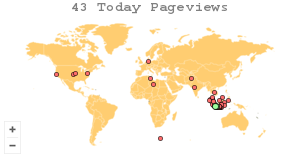KONSEP TUJUAN HIDUP MANUSIA DALAM PERSPEKTIF AL-QUR’AN
DOI:
https://doi.org/10.47498/bashair.v3i2.2552Keywords:
Human, Purpose of Life, the Qur'anAbstract
This article aims to discuss the concept of the purpose of human life from the perspective of the Qur'an, how humans were created and the function of humans as caliphs on this earth in carrying out the mandate from Allah swt. while on the surface of the earth. Humans were created in the best form with various advantages given that they can adapt, are able to choose good paths and bad ones so as not to lead them down a path that will destroy them. Apart from that, humans are creatures that can be educated so that with this potential humans can be educated in a direction that is in accordance with Islamic teachings. The purpose and benefit of knowing the concept of humans in the Qur'an is to know the various strengths and advantages that humans have so that by knowing the conditions and potential they have, humans can find out the ideal method for developing the potential that humans have so that they can lead the world in development. civilization in the direction prescribed in the Qur'an and al-Hadith.
References
Abdullah, A. A. (2023). Application of Multicultural Education in Strengthening Community Solidarity in Indonesia. Jurnal Ilmiah Peuradeun, 1173-1198.
Aminah, S. (2016). Peran Pemerintah Menanggulangi Radikalisme dan Terorisme di Indonesia. Inovasi dan Pembangunan: Jurnal Kelitbangan, 3(1).
Al-Syaukāni, M. b. (1978). Nailul Auṭār Syarhu Muntaqa al-Akhbār (Vol. VI). Mesir: Maktabah Al-Kulliyat Al-Azhariyah.
al-Qattan, M. K. (2010). Studi ilmu-ilmu Qur’an. Bogor: Pustaka Litera Antar Nusa.
al-Qaraḍāwi, Y. (1995). Al-Fatwā Baina al-Inḍibāṭ wa al-Tasayyib. Beirut: Al-Maktab al-Islāmī.
An-Nahlawi, A. (1995). Pendidikan Islam di Rumah. Sekolah dan Masyarakat. Jakarta: Gema Insani Press.
Asy'arie, M. (1992). Manusia Pembentuk Kebudayaan dalam al-Qur'an. Jakarta: LESFI.
Basyir, A. A. (1984). Falsafah Ibadah dalam Islam. Yogyakarta: Perpustakaan Pusat UII.
Bogdan, R. C. (1992). Qualitative Research for Education: An Introduction to Theory and Methods. Allyn and Bacon. Boston: Inc.: Boston London.
Hidayat, H. (2021). Radikalisme Agama Perspektif Al-Qur’an. Madani Jurnal Politik dan Sosial Kemasyarakatan, 13(1).
Jalaluddin. (2003). Teologi Pendidikan. Jakarta: Rajagrafindo Persada.
Maleong, L. J. (1988). Metodologi Penelitian Kualitatif. Bandung: PT. Remaja.
Miles, M. (1992). Analisis Data Kualitatif. Terjemahan oleh Tjetjep Rohendi Rohidi. Jakarta: Penerbit Universitas Indonesia.
Nawawi, R. S. (2000). Konsep Manusia Menurut al-Qur'an, dalam Rendra K (Penyunting) Metodologi Psikologi Islam. Yogyakarta: Pustaka Pelajar.
Shihab, M. Q. (1996). Wawasan al-Quran. Bandung: Mizan.
Sugiyono. (2010). Metode Penelitian Pendidikan Pendekatan Kuantitatif, kualitatif, dan R & D. Bandung: Alfabeta.
Walgito, B. (1987). Psikologi Sosial. Yogyakarta: Yayasan Penerbit Fakultas Psikologi UGM.
Downloads
Published
Issue
Section
License
Authors who publish articles in Basha'ir: Jurnal Studi Al-Qur'an & Tafsir agree to the following conditions:
- The author retains copyright and grants the Basha'ir Journal the right from the first publication with the work simultaneously licensed under a Creative Commons Attribution-ShareAlike 4.0 International (CC BY-SA 4.0) license that allows others to make changes, adjust and build on the work with recognition of the author's work and initial publication in the Journal.
- Authors are allowed to copy and redistribute published versions of works in journals (for example, posting them to institutional repositories or publishing them in a book), with recognition of their initial publication in Basha'ir: Jurnal Studi Al-Qur'an & Tafsir.
- Authors are allowed and encouraged to post their work online (for example, in institutional repositories or on their websites) before and during the submission process, as it can lead to productive exchanges, and increase citations of published works






